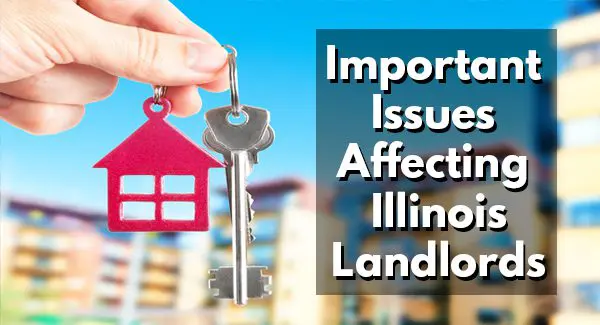- Landlord & Tenant Law, Legal Updates
- Illinois
Illinois landlords should take note of an important new legal requirement taking effect January 1, 2026. Under Public Act 103-0622 (765 ILCS 752/1), all landlords in Illinois must attach the new Violence Against Women Act (VAWA) summary as the first pages of every new lease and renewal.
This mandate applies to all rental properties located within the state of Illinois, regardless of size or type.
The Violence Against Women Act (VAWA) summary:
- Outlines tenants’ rights and protections for victims of domestic violence, dating violence, sexual assault, and stalking
- Provides information on confidentiality and remedies available under state and federal law
Importantly, the law requires that the VAWA summary be signed by all individuals listed on the lease. Failure to comply could result in significant penalties, including the possibility of class action lawsuits against non-compliant landlords.
Landlords and rental property managers are encouraged to review their lease templates and renewal processes now to ensure they are ready to comply by the January 1, 2026 deadline.
A copy of the required VAWA summary form is available: https://dhr.illinois.gov/legal/summary-of-rights-for-safer-homes-act.html
Public Act 103-0622 (765 ILCS 752/1 can he found here: https://www.ilga.gov/Legislation/ILCS/Articles?ActID=4533&ChapterID=62&utm
Legal Resource
Questions about how this new Illinois requirement impacts leasing documents, updating rental procedures, or other legal concerns?
Since 1983, KSN has been a legal resource for condominium, homeowner, and townhome associations. Additionally, we represent clients in real estate transactions, collections, landlord/tenant issues, and property tax appeals. We represent thousands of clients and community associations throughout the US with offices in several states including Florida, Illinois, Indiana, and Wisconsin.
Please note the material contained in this article is for educational and informational purposes only and does not constitute legal advice. No attorney-client relationship is established by your review or receipt of the information contained in this article. You should not act on the information discussed in this article without first obtaining legal advice from an attorney duly licensed to practice law in your State. While KSN has made every effort to include up-to-date information in this article, the law can change quickly. Accordingly, please understand that information discussed in this article may not yet reflect the most recent legal developments. Material is not guaranteed to be correct, complete, or up to date. KSN reserves the right to revise or update the information and statements of law discussed in the article law at any time, without notice, and disclaims any liability for your use of information or statements of law discussed in the article, or the accessibility of the article generally. This article may be considered advertising in some jurisdictions under applicable law/s and/or ethical rules/regulations. © 2025 Kovitz Shifrin Nesbit, A Professional Corporation.


